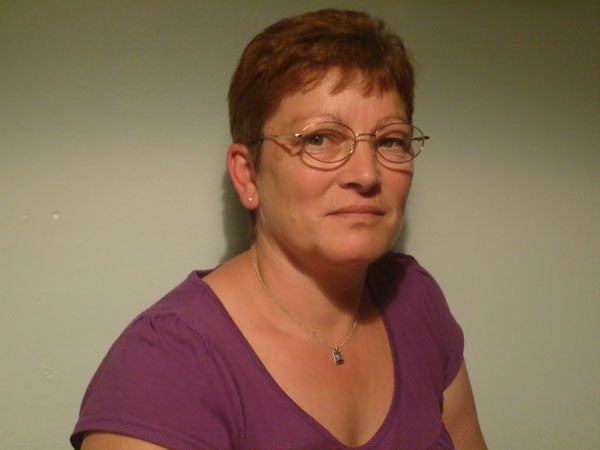Wealth Check: 'I dream of owning a home but have no savings'

Your support helps us to tell the story
From reproductive rights to climate change to Big Tech, The Independent is on the ground when the story is developing. Whether it's investigating the financials of Elon Musk's pro-Trump PAC or producing our latest documentary, 'The A Word', which shines a light on the American women fighting for reproductive rights, we know how important it is to parse out the facts from the messaging.
At such a critical moment in US history, we need reporters on the ground. Your donation allows us to keep sending journalists to speak to both sides of the story.
The Independent is trusted by Americans across the entire political spectrum. And unlike many other quality news outlets, we choose not to lock Americans out of our reporting and analysis with paywalls. We believe quality journalism should be available to everyone, paid for by those who can afford it.
Your support makes all the difference.April Gordon is a children's club manager from Gloucester. She would like to buy a property but is unsure how to make it happen as she has very little spare cash.
"At the moment I rent a privately owned property and live with my 16-year-old son, Matthew," says April, 46. "I am on the council's housing waiting list and I check it regularly for any available properties, but I would love to own my own home outright."
April enjoys her job but she has to restrict her working hours, and therefore her income, to fit around the school day. "I am determined to pay my own way but, at the moment, I get to the end of each month and panic, so to be financially comfortable would be great."
April has a basic monthly budget but it leaves her with little spare cash after repaying costly credit and store card debts. "I need to get organised as I am not currently paying into a pension," she admits. "Although I am managing at the moment, I need some budgeting advice in order to know where to start to achieve my goals."
Case notes
Annual income
From job: £10,500
Tax credits: £4,200
Child maintenance: £3,216
Total: £17,916
Pension: None
Savings: None
Offering advice this week are Lorreine Kennedy, of Care Matters, Danny Cox, of Hargreaves Lansdown, and Nick Evans, of One Life Wealth Planning.
Budgeting and saving
"It sounds like April is doing everything possible to reduce her rental costs and, if she persists, this will pay off," explains Evans. "However, there is no magic solution to April's financial life and her benefits will dry up when Matthew reaches 18 or leaves full-time education."
The starting point of a budget is to understand where money is going and April should write down everything she spends, says Cox. "This will let her look back and see where money is being spent unnecessarily," he adds. "Once she has established her true disposable income, she should set a target to repay a proportion of her credit debts each time."
Although paying off credit-card debt is a relatively common problem, April's credit and store cards have high interest rates (29.9 per cent APR). "The interest rates on her store cards are astronomical compared to the Bank of England base rate, so she should be looking to clear these first," adds Cox.
"If repayment of these debts is not currently possible, restructuring the credit debts with a card provider which offers a lower rate of interest is the best way forward," advises Kennedy. "Once she has these under control, then she should start to build up an emergency fund, ideally the equivalent of six months' expenditure."
"There may be some things you can consider to try to reduce your spending further," suggests Evans. "Websites such as uSwitch.com can be good at helping you to shave a few pounds off your utility bills."
Buying a property
April is on her council's housing waiting list but this list does not work on a first-come first-served basis, explains Kennedy. "Housing is allocated to those who are in need of it most and in view of Matthew's age, it is unlikely that she will ever be lucky enough to be offered accommodation."
An option could be to part-own a home with a housing association, suggests Evans. "Owning part of your home is better than outright renting, and April would be able to buy a greater share of a home when her circumstances improved," he says. If she has realistic ambitions to own a home, then she has to find a way to save. "The average price of a two-bedroom home in Gloucester is £106,000, so April would expect to spend £11,000 on a deposit and a further £2,000 on associated legal and moving costs," Kennedy adds.
Saving for the future
"April should ensure that she will receive a full state pension. She can request a forecast at www.thepensionservice.gov.uk. This will detail her current entitlement and how she may be able to boost her state pension if there is a shortfall," explains Cox.
Being 46 with no pension means that any retirement aspirations will be challenging for April, so saving sooner rather than later is advisable. "Clearly, there will not be much money to put aside just yet but even just £20 will get the habit started," says Evans.
"Currently, the state provides additional support for those with the greatest need, but future state support is an unknown quantity," says Kennedy. "I would suggest that April starts to invest in a stocks and shares Individual Savings Account (Isa), utilising the cash element of it to build up her emergency funds."
For a free financial check-up, write to Wealth Check, The Independent, 2 Derry Street, London W8 5HF; or email wealthcheck@independent.co.uk
More information
To find an independent financial adviser in your area, visit www.unbiased.co.uk
Join our commenting forum
Join thought-provoking conversations, follow other Independent readers and see their replies
Comments